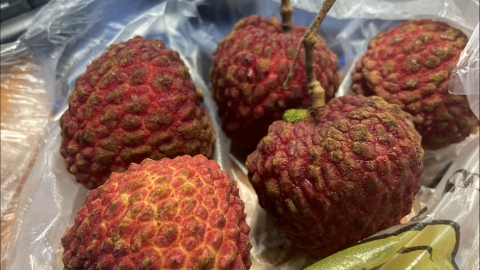Can I eat lychee during early pregnancy?
Generally speaking, whether a woman who has just become pregnant can eat lychees should be determined based on her physical condition and pregnancy symptoms. Those with mild morning sickness, normal blood sugar levels, and no heatiness symptoms may consume lychees in moderation. However, those experiencing severe morning sickness, abnormal blood sugar levels, or having a naturally "heaty" constitution should avoid eating lychees. Detailed analysis is as follows:

If morning sickness symptoms are mild during early pregnancy, gastrointestinal function is normal, and blood sugar levels are stable without signs of heatiness such as dry mouth or constipation, small amounts of lychees can be consumed. Lychees are rich in glucose and vitamin C, which can provide energy needed during early pregnancy, help relieve fatigue, and their iron content may assist in preventing anemia during pregnancy. These women's digestive functions are not significantly affected, so eating small amounts of lychees is unlikely to cause discomfort.
For pregnant women experiencing severe morning sickness during early pregnancy, frequent nausea and vomiting, or weakened gastrointestinal function, eating lychees may increase gastrointestinal burden and easily cause discomfort such as bloating and acid reflux. Pregnant women with elevated blood sugar levels or at risk for gestational diabetes should avoid lychees because their high sugar content can cause blood sugar fluctuations, increasing the risk of pregnancy complications. For pregnant women with a naturally "heaty" constitution, consuming lychees may exacerbate internal heatiness, leading to symptoms such as swollen gums and constipation, which are not conducive to physical regulation during early pregnancy.
Pregnant women should maintain a positive and optimistic mindset in daily life, follow a balanced diet, engage in appropriate physical activity, attend regular prenatal checkups, and follow professional medical advice to ensure the health of both mother and baby.







